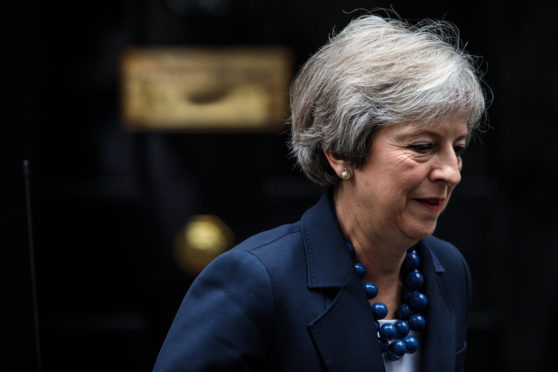When Theresa May begins her meetings with EU negotiators in Austria today she will be aware that these crucial talks are the easiest part of the Brexit process.
It’s not that her European tormentors, Barnier and Junker, have gone soft, or that her Chequers deal will sail through without further compromise.
But, without wishing to tempt fate, the bartering with Brussels has reached the point where compromise is in the air.
The closer the prime minister gets to sealing the cracks between Britain’s and Europe’s positions, the louder her critics within the Conservative Party grow.
At the forefront, Boris Johnson launched the latest in his hostile attempts to scupper the Chequers plan.
On Monday, he said the PM must “rip up” Chequers, which includes a customs agreement and what her opponents call a “virtual single market”.
Even as Mrs May is trying to persuade her European counterparts that her blueprint is acceptable, she will have the shadow of Mr Johnson looming.
Parliament is due to vote on the deal in the autumn, and the arithmetic is not looking good for Mrs May.
On top of the hardline Brexiteers, Labour and the Lib Dems are opposed to Chequers and the SNP is against anything the Westminster government puts forward.
And the DUP is backing a Northern Ireland alternative advocated by Jacob Rees-Mogg, the most strident of all Brexiteers.
Those of us who voted Remain are naturally exasperated by this mess that needn’t have been. But given that we’re now in it, Mrs May’s approach seems to be the best, if not the only, way ahead.
Even some of her foes have realised this. It was Michael Gove, the former education secretary and leadership challenger, who was sent to the TV studios on Sunday to defend his boss. He argued Chequers was the only option.
He called on Eurosceptics to back Mrs May in order to secure Brexit, rather than risk an upset in parliament and possibly a general election.
His caveat – that a future prime minister (him perhaps?) could always then alter the relationship with Europe – was brazen but at least he sees the dangers of rebellion.
Mrs May has been an easy target to mock, from left and right, but her ability to bend may turn out to be just what Britain needed at this difficult time which, remember, was not of her making. If only more politicians could see past their selfish preoccupations and offer their premier some support as she goes into battle, we might get a result that most of us can live with.


